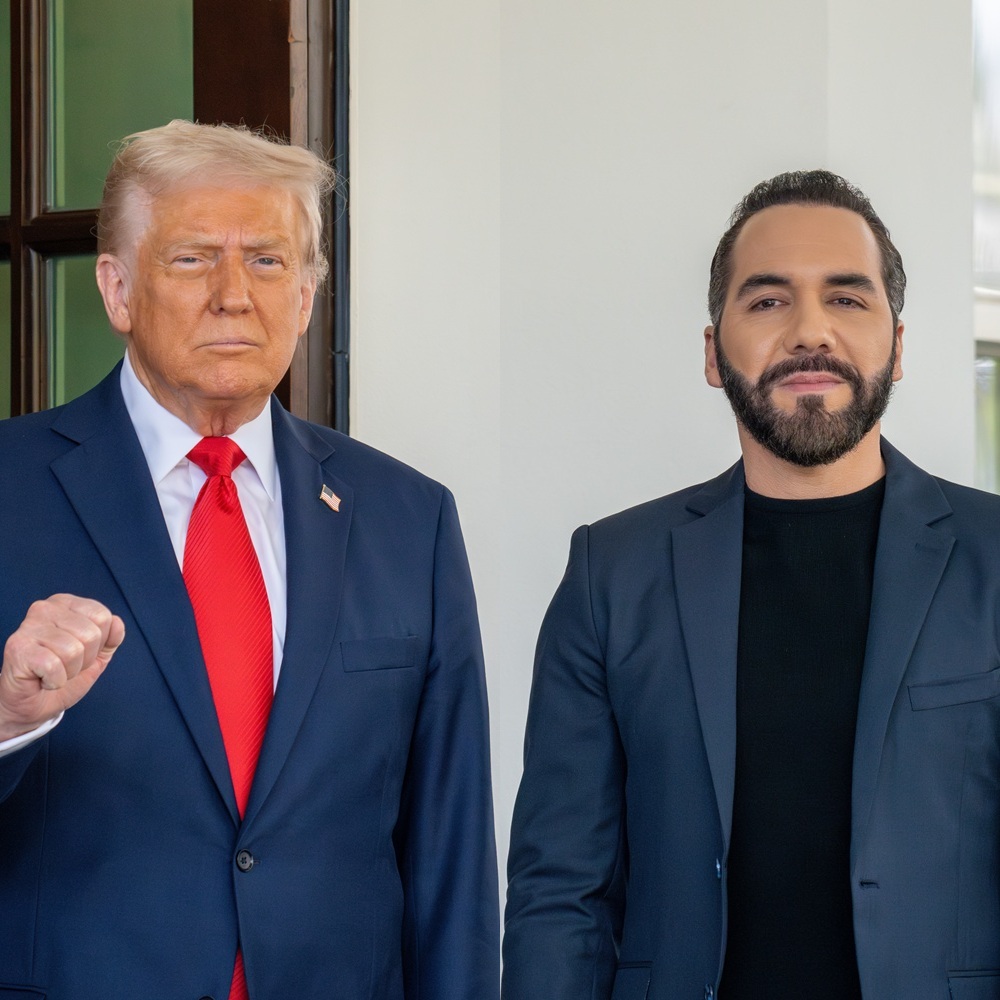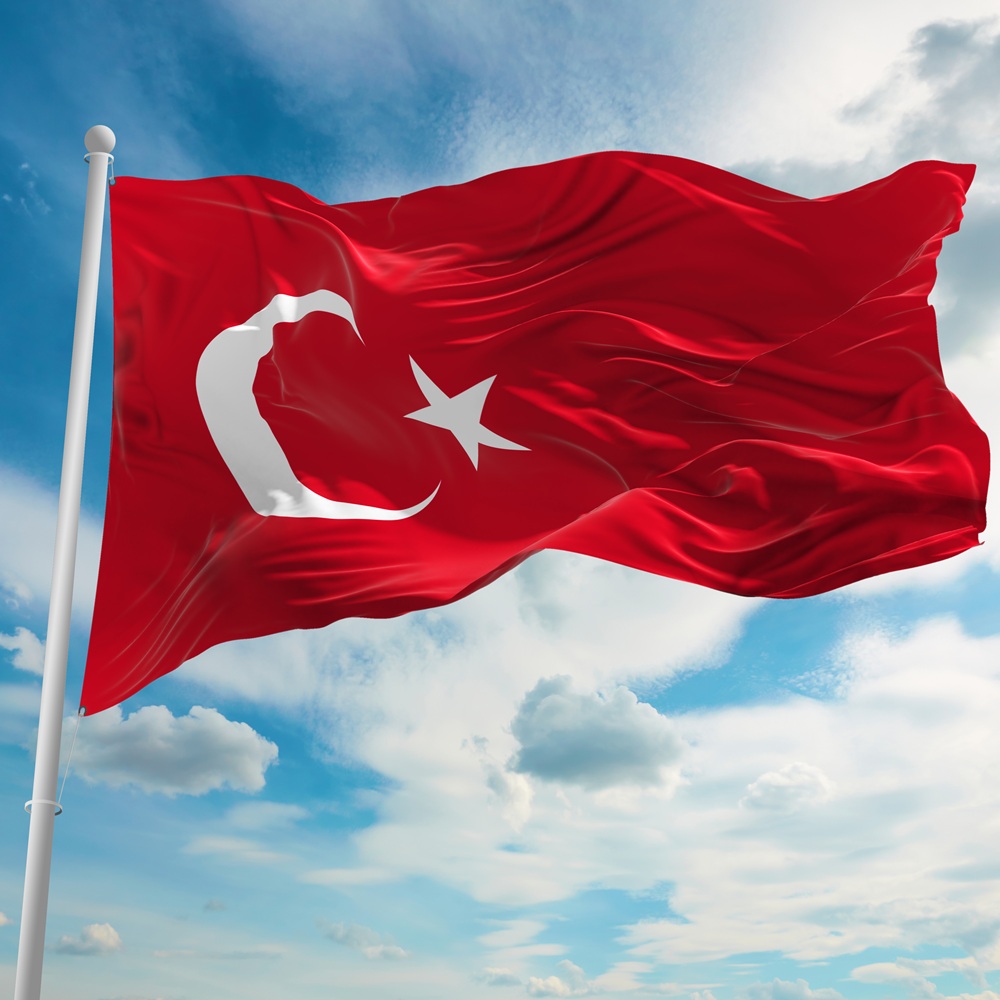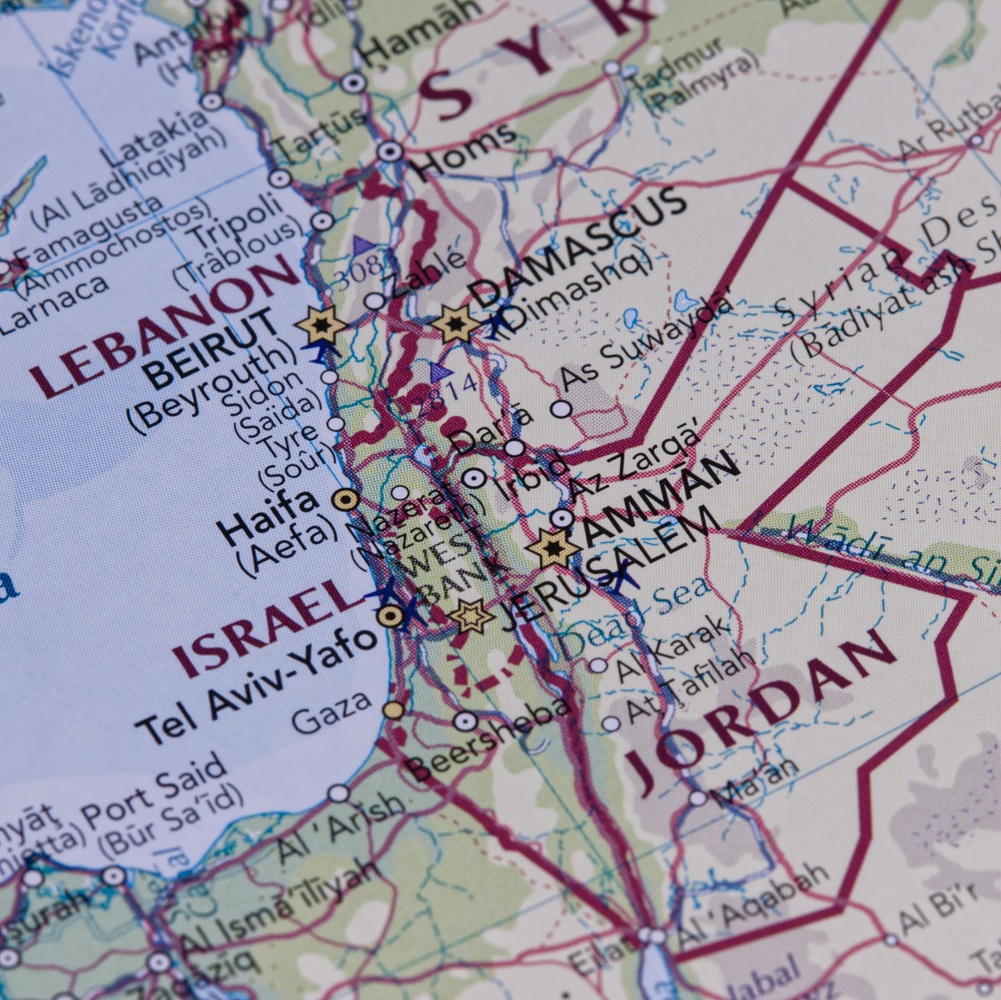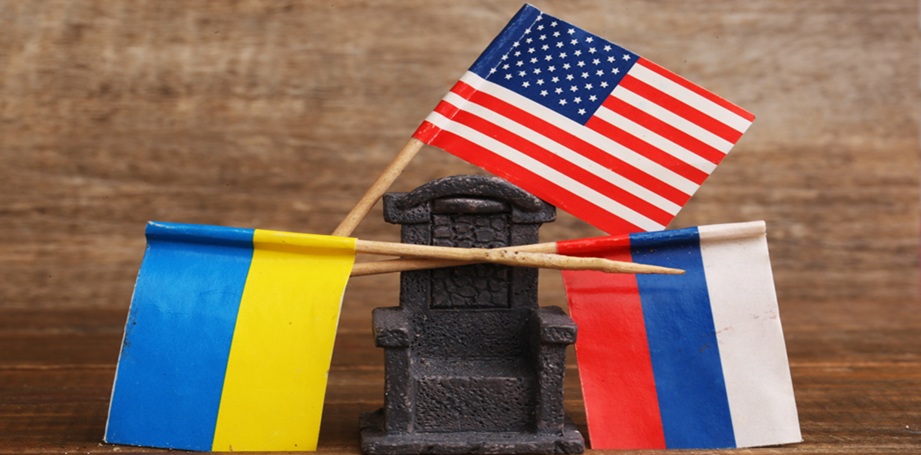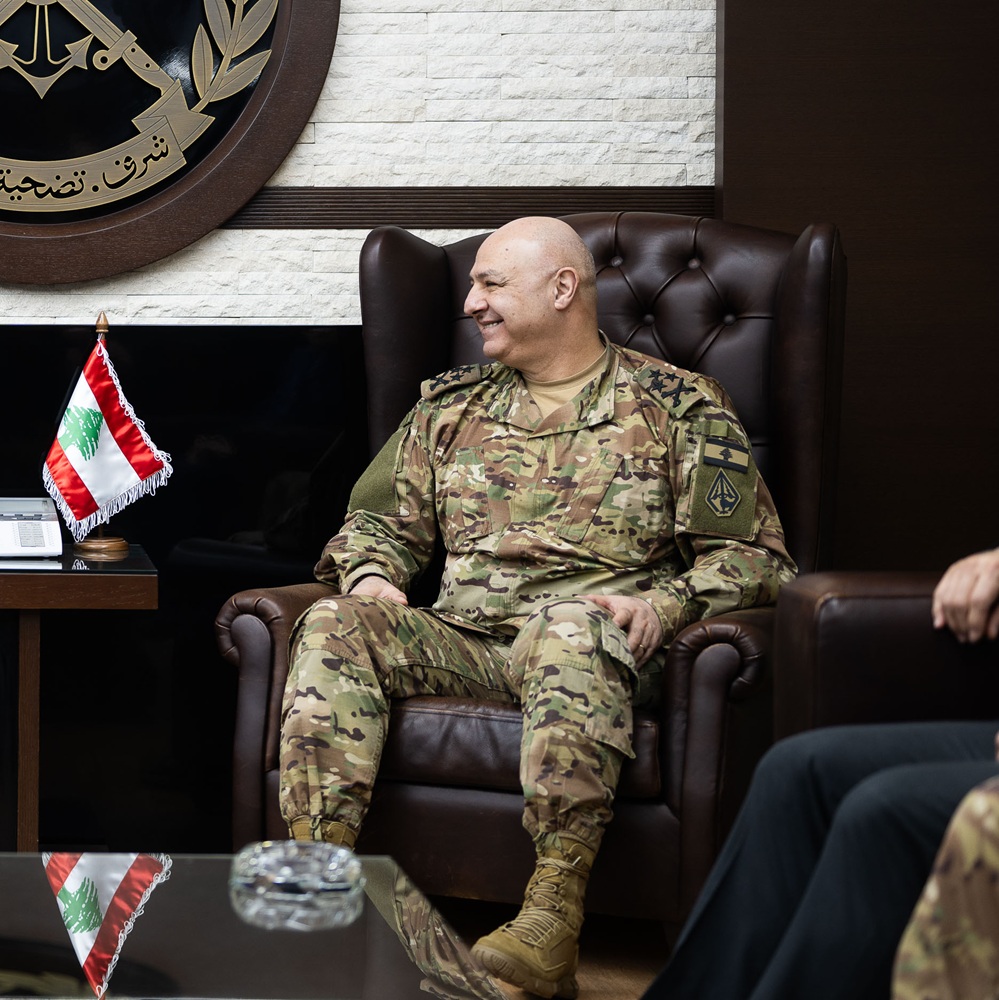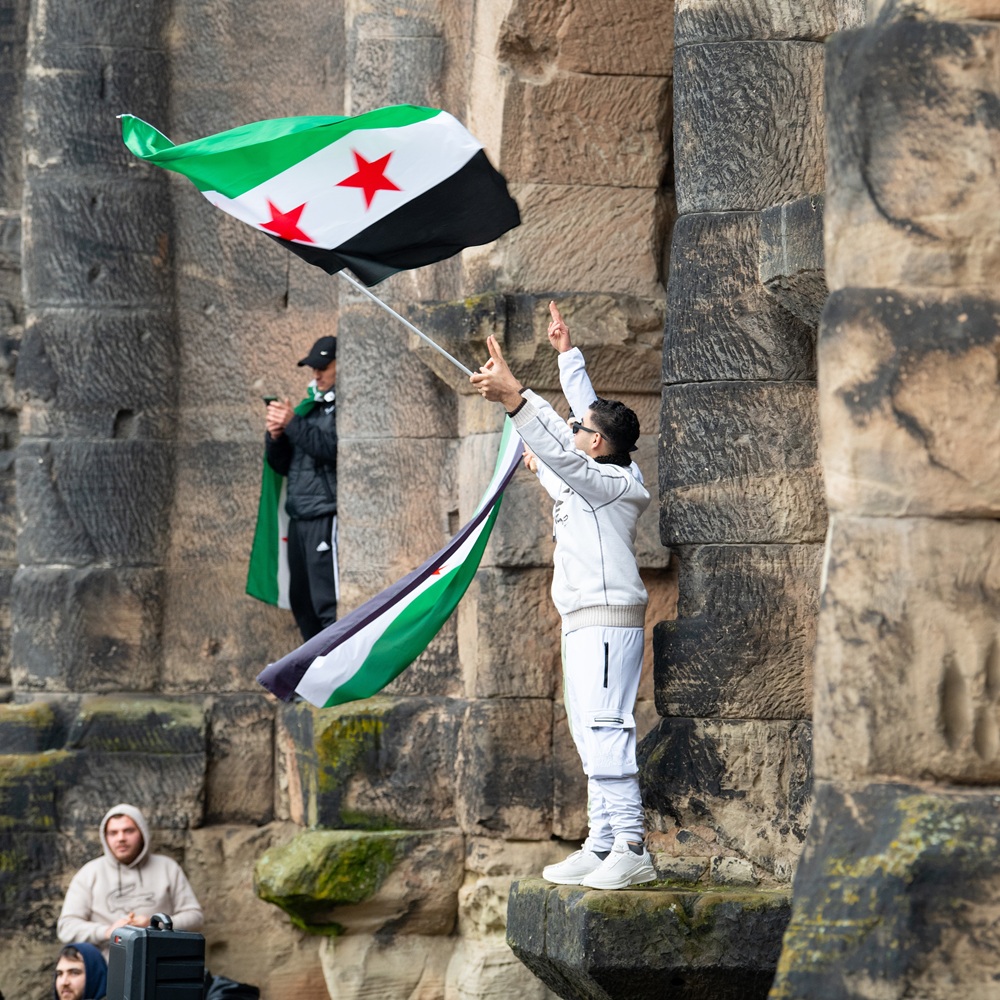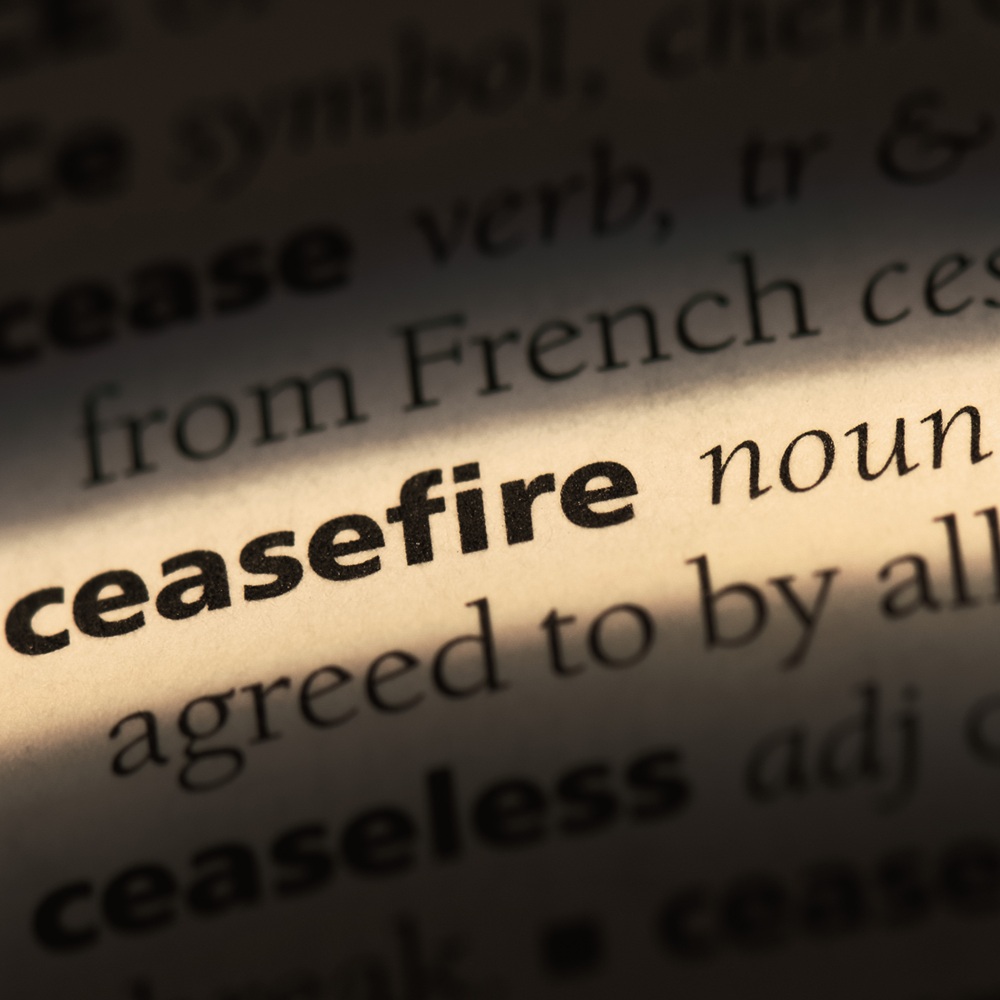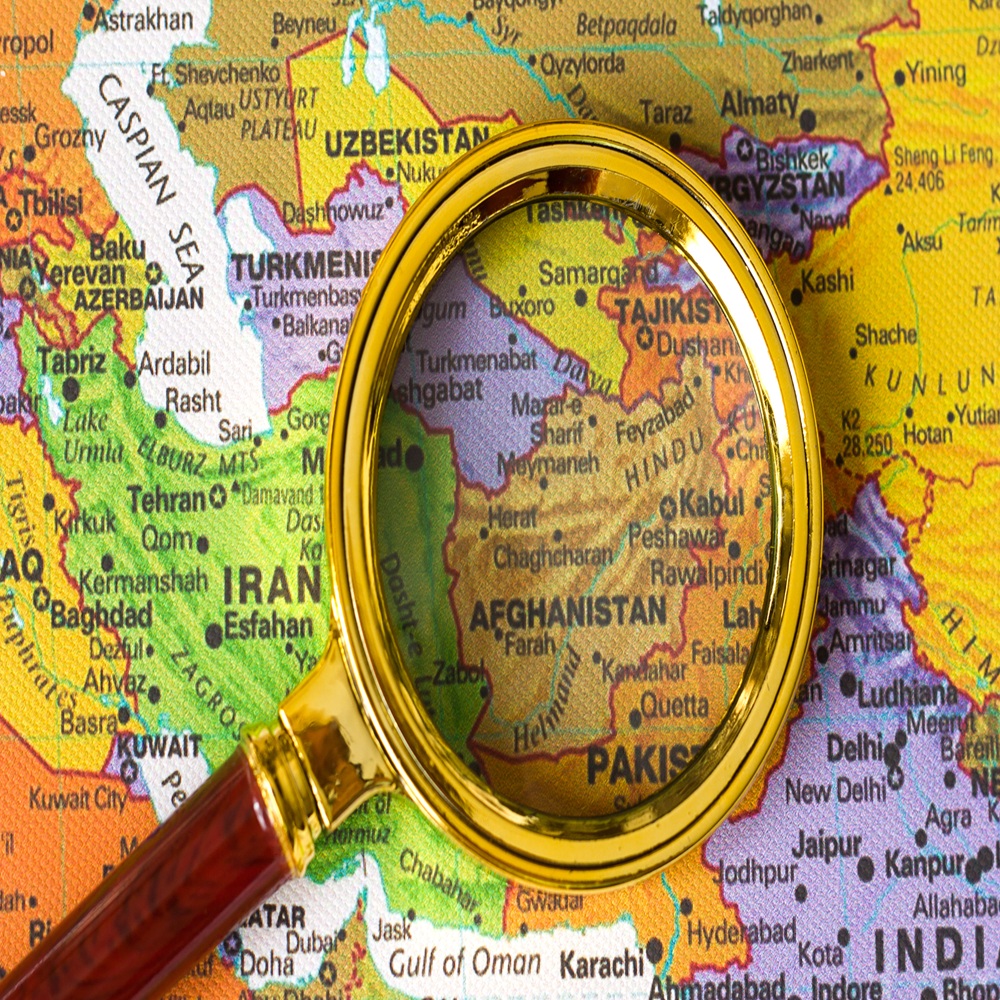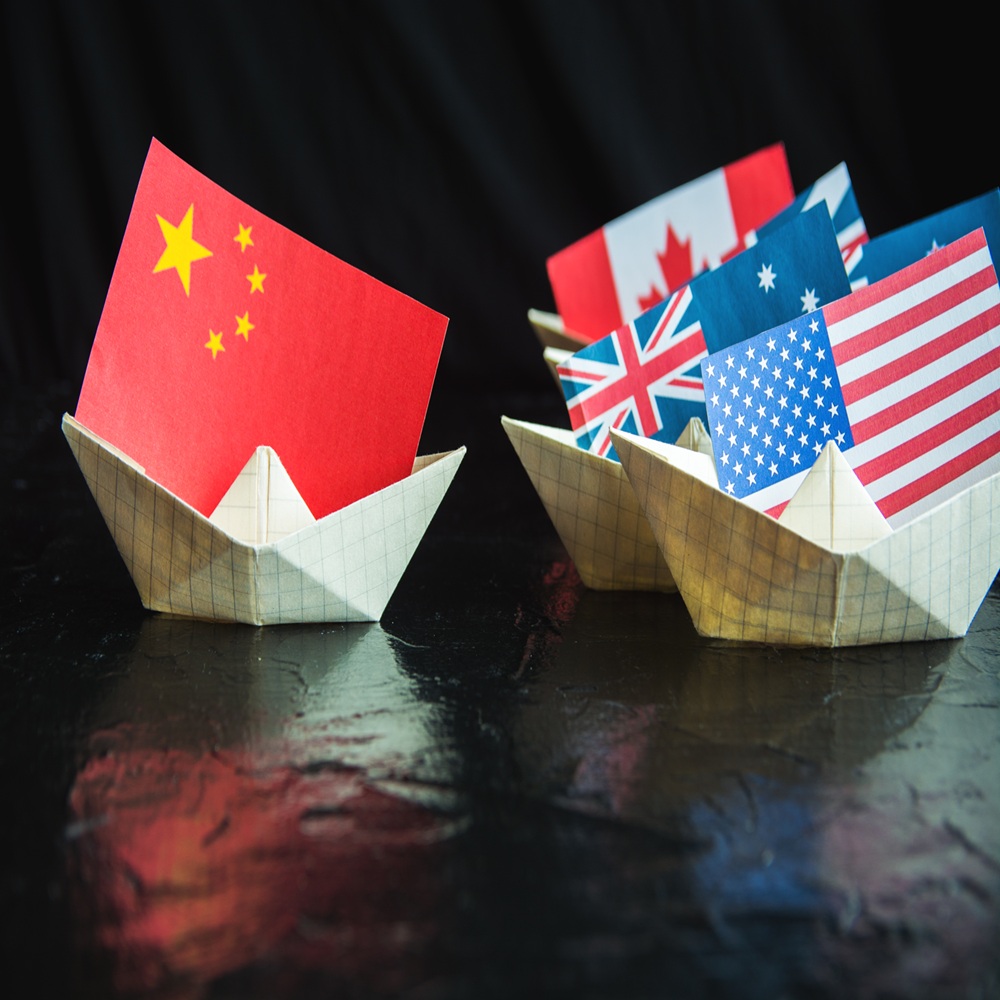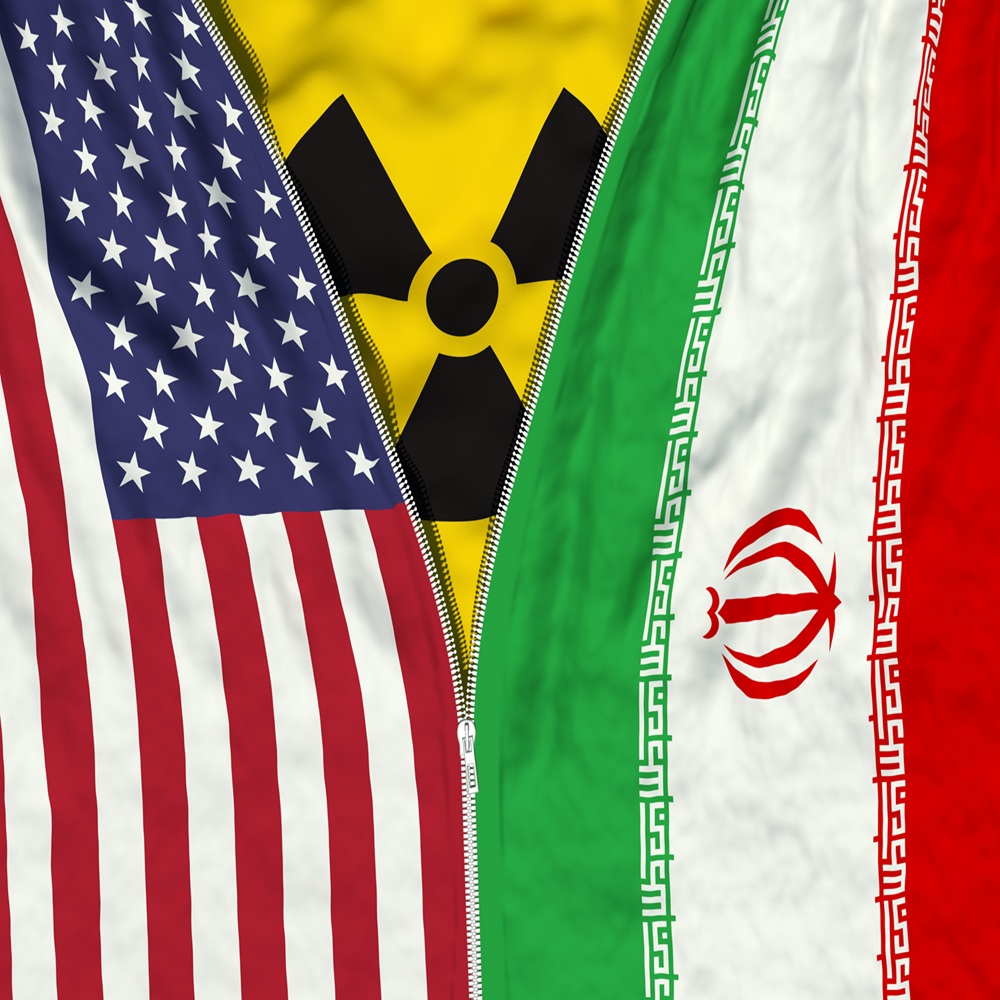
Does the Muscat Round Pave the Way for a Potential Deal Between Washington and Tehran?
by Sherif Haridy
한국어로 읽기 Leer en español In Deutsch lesen Gap اقرأ بالعربية Lire en français Читать на русском Does the Muscat Round Pave the Way for a Potential Deal Between Washington and Tehran? The US-Iranian talks held in Muscat concluded on Saturday, April 12, 2025, successfully addressing contentious issues between the two nations, particularly the Iranian nuclear program crisis. Foreign Minister Abbas Araqchi led the Iranian delegation, while Middle East envoy Steve Witkoff headed the US team, with Oman serving as mediator throughout the proceedings. Both delegations expressed satisfaction with the prevailing atmosphere during the discussions. President Donald Trump characterized the talks as "progressing very well," while Witkoff described the Oman negotiations as "very positive and constructive." According to Araqchi, all parties demonstrated their commitment to advancing discussions until reaching a mutually beneficial agreement. Upon conclusion of these productive negotiations, the Iranian Foreign Ministry announced a second round of indirect talks would be held on Saturday, April 19, again in Muscat with Omani mediation. Round One The US-Iran talks in Muscat hold significant importance as they represent the first diplomatic engagement since negotiations ceased between April 2021 and September 2022, which had occurred in a 4+1 format with indirect US participation. Notably, these Muscat discussions mark the first diplomatic exchange under both Iranian President Masoud Pezeshkian and US President Donald Trump. Several key implications emerge from these talks: 1- A face-saving negotiation format for both sides: Following the announcement of planned discussions, Washington consistently pressed for direct talks to expedite the process and quickly reach an agreement. Tehran, conversely, insisted on indirect engagement, at least initially, to build confidence in American sincerity. According to published reports, the American and Iranian delegations occupied separate rooms in Omani Foreign Minister Badr al-Busaidi's residence, exchanging written messages through Omani mediators—satisfying Iran's requirement for indirect negotiations. Reports also indicate that after the approximately two-and-a-half-hour session concluded, Araghchi met briefly with Uytkov, conversing for several minutes in the Omani Foreign Minister's presence before departing—thereby fulfilling Washington's desire for direct engagement. Beyond these procedural arrangements for the initial round, such compromises demonstrate both sides' willingness to overcome obstacles impeding an agreement, potentially foreshadowing solutions to other challenges expected during future negotiation rounds. 2- Disagreement over the framework for negotiations: A disagreement over the scope of negotiations has persisted between the two sides since the initial round of talks. Iran adamantly maintains that discussions should focus exclusively on nuclear matters, leaving out both the missile program and regional role concerns. Supporting this position, Iranian Foreign Ministry spokesman Esmail Baghaei stated on April 13 that an agreement had been reached to limit negotiations to the nuclear issue and sanctions relief, confirming these topics would constitute the agenda for upcoming talks. Meanwhile, Washington remains adamant about including additional issues in negotiations with Tehran, particularly arms programs, with the missile program at the forefront. Witkoff stated that any diplomatic agreement with Iran would depend on verification of its uranium enrichment programs and, ultimately, confirmation of the missile arsenal Iran has developed over the years. Tehran has repeatedly declared openness to measures verifying it does not possess nuclear weapons, often citing Supreme Leader Ali Khamenei's fatwa prohibiting such weapons. Such declarations may indicate willingness to reduce its nuclear program and potentially return to the 3.67% enrichment levels stipulated in the 2015 agreement—significantly lower than current levels exceeding 60%. However, Iran has firmly rejected completely dismantling its nuclear program (like the "Libyan model") or transferring highly enriched uranium to third countries, citing distrust of Washington and concerns about another withdrawal from agreements as occurred during Trump's presidency in 2018. Regarding the missile program, Revolutionary Guards spokesman Ali Mohammad Naeini responded to Witkoff's statement about including the missile arsenal in negotiations by declaring that Iran's military capabilities, including its missile program, represent a "red line" that remains non-negotiable under any circumstances. 3- Potential Iranian economic incentives: Some sources indicate that, in response to Trump's letter, Iran offered "economic benefits" that could advantage American companies if an agreement was reached between the two sides. These sources estimated potential benefits at $1 trillion or more. The proposal aligns with President Pezeshkian's April 9 statement that Supreme Leader Khamenei would not object to American investments entering Iran, "but without conspiring against Iran." Araghchi confirmed this position in his Washington Post article published that same day, calling on the United States to prefer diplomatic options when dealing with Iran and describing the Iranian economy as a "trillion-dollar opportunity" for American companies and businessmen. Tehran's attempts reveal a desire to motivate the Trump administration, which prioritizes trade and investment as key determinants of political engagement. One reason Trump withdrew from the 2015 nuclear agreement was Washington's lack of benefit from investment deals allowed by the opening to Iran, while Europeans gained advantages, particularly in oil and petrochemical sectors. Consequently, Tehran is strategically focusing on economic opportunities, potentially driving Iran toward diplomatic approaches with Washington and an agreement that would lift the burden of sanctions imposed on the country. 4- European exclusion: No European party participated in the Muscat negotiations, and Washington likely held no consultations with the "European Troika" (Britain, France, and Germany) that participated with Iran in the 2015 agreement. Sources indicate that the meeting between US Secretary of State Marco Rubio and the foreign ministers of the three European countries, on the sidelines of the NATO foreign ministers' meeting in Brussels on April 3, failed to produce any joint plan addressing contentious issues with Iran. The exclusion reflects tense relations between Washington and its European allies, stemming from numerous disagreements—most notably the current US administration's position on the Russian-Ukrainian war and the tariffs imposed on most countries, including European ones. Moreover, it highlights Trump's desire to engage with Iran unbound by other parties' interests. Europeans prefer a diplomatic approach to dealing with Tehran, an approach Trump does not see as entirely reliable. Instead, he considers the military option a viable alternative should negotiations fail or not yield an agreement with Tehran. Nevertheless, the "European Troika" maintains significant leverage over Tehran through the so-called "trigger mechanism." The mechanism enables automatic reinstatement of UN sanctions imposed on Iran prior to the 2015 agreement if any of these countries complains to the Security Council about Iran's violation of the agreement. Such leverage perhaps explains why the Iranian delegation in Muscat requested its American counterpart ensure Washington assumes responsibility for preventing activation of the "trigger mechanism" against Tehran. Consequently, the "European Troika" countries will remain parties to negotiations between the United States and Iran, regardless of their format. Potential Effects Following the initial US-Iran discussions in Muscat, several potential repercussions can be anticipated: 1- Postponing the military option: The positive atmosphere during the Muscat talks, coupled with the announcement of future rounds of discussions, suggests Washington may delay military action regarding the Iranian nuclear issue. Initially, the Trump administration advocated for military intervention as a pressure tactic to compel Tehran back to negotiations and secure a swift agreement on its nuclear program. Nevertheless, with ongoing dialogue between both parties, any military options might remain on hold until the results of these diplomatic exchanges become clearer. The escalating costs of military conflict may compel both sides to favor diplomatic negotiations and concessions. Tehran recognizes that American strikes on its nuclear facilities—whether conducted unilaterally or with Israeli cooperation—would present an overwhelming challenge to counter and manage. Similarly, Washington acknowledges that bombing Iran's nuclear installations could expose American forces and bases throughout the region to retaliatory attacks from Tehran or its armed proxies, while potentially disrupting vital maritime traffic. Given these high-stakes calculations, both nations may increasingly prioritize diplomatic solutions to resolve their differences, with Washington maintaining military action only as a final option should negotiations fail. 2- Supporting the chances of signing an agreement: Unlike previous negotiations during the Hassan Rouhani and Ebrahim Raisi administrations, realistic data suggests Tehran faces severe time constraints. Trump has imposed a temporary deadline for Iran to resolve its nuclear program, with military action serving as the alternative. The military option has gained momentum as Tehran lost substantial capabilities among its regional proxies, which would have increased the cost of any attack against it. Moreover, according to Israeli and American accounts, the Israeli strike on October 26, 2024, successfully destroyed critical defense systems within Iranian territory. The approaching October 18 expiration date of the 2015 nuclear agreement intensifies pressure on Iran. Urgency mounts as the nation seeks a solution before the European Troika countries activate the "trigger mechanism" prior to that deadline. Unlike negotiations during the Rouhani and Raisi administrations, current talks will likely proceed more rapidly. Trump's April 13 statement that he expects "a decision on Iran will be made very quickly" further suggests the possibility of an expedited agreement with Iran. 3- Internal Iranian opposition: The move to hold negotiations with Washington may face opposition from some hardline fundamentalist groups. Despite Tehran's negotiations with Washington receiving approval from Khamenei and influential institutions rather than originating from Pezeshkian's government, resistance to these discussions remains possible. Statements from hardline Islamic Consultative Assembly (parliament) member Hamid Rasaei suggest underlying opposition when he claimed "the current negotiations were conducted with the Supreme Leader's approval to prove their failure, and for some optimistic officials to discover once again that the Americans are not committed and that it is irrational to rely on them." Additionally, any potential deal allowing American investments into the Iranian market might trigger objections based on constitutional restrictions. Articles 81 and 153 specifically prohibit granting concessions to foreign companies and foreign control of resources. From this perspective, such diplomatic moves could encounter resistance from institutions controlling key economic sectors, including the Revolutionary Guard and the bazaar. Some hardliners may interpret these developments as "Westernization of the economy," viewing them as concerning repetitions of historical scenarios embedded in Iranian collective memory. 4- Strengthening the role of the Iranian Foreign Ministry: The information that preceded the Muscat round of talks claimed three figures had been appointed to represent the Iranian delegation: Ali Larijani, advisor to the Supreme Leader; Mohammad Foruzandeh, a member of the Expediency Discernment Council; and Mohammad Javad Zarif, former assistant to the Iranian president for strategic affairs. However, the actual Iranian delegation to Oman was headed by Foreign Minister Araghchi, and included his aides for political affairs, Takht-e Ravanchi; Kazem Gharibabadi, for legal and international affairs; and Ismail Baghaei, the Foreign Ministry spokesman, along with other negotiators and technical experts. The composition aligned with Araghchi's earlier assertion that responsibility for the negotiations would fall to the Ministry of Foreign Affairs. Such prioritization indicates the regime's desire to send diplomatic messages, similar to events following former Iranian President Rouhani's election in 2013, which ultimately led to the signing of the 2015 nuclear agreement. The diplomatic approach contrasted with periods when Tehran leaned toward hardline positions, during which broad powers were granted to the National Security Council to manage the nuclear issue, as seen during the terms of former presidents Mahmoud Ahmadinejad and Raisi. The regime's strategy appears inseparable from other domestic preparations made in anticipation of signing an agreement with the West. Notable examples include moving toward approval of conditions necessary for joining the Financial Action Task Force on Terrorism and Money Laundering (FATF), which would help Iranian banks access services provided by the SWIFT international financial transfer system. Some analysts attribute additional internal measures to this effort, including revisions to the strict provisions of the "chastity and hijab" law, the release of individuals under house arrest such as prominent reformist figure Mehdi Karroubi, and the easing of certain restrictions on internet use. 5- Russian and Chinese discontent: Negotiations between the United States and Iran may provoke discontent from Russia and China, fellow parties to the 2015 nuclear agreement. Both nations fear Tehran might forge an agreement with Washington that would undermine the coordination among Russia, China, and Iran. These concerns intensify amid severely strained Washington-Beijing relations following the announcement of historically high mutual tariffs between the two countries. Adding to the tension is Trump's apparent indifference resulting from Russian President Putin's delay regarding the US peace plan for Ukraine. Accordingly, Iranian Foreign Minister Araqchi's visit to Moscow was announced ahead of the second round of talks scheduled for April 19 to brief the Russian side on the progress of the talks with Washington. Additionally, Iranian Deputy Foreign Minister Kazem Gharibabadi met with his Russian counterpart, Sergey Vasilievich Vershinin, during a meeting of supporters of the UN Charter in Moscow. The diplomatic efforts represent an attempt to allay Russian concerns and send a message to Washington that Tehran has other international alternatives if the current negotiations fail. In conclusion, the Muscat negotiations served as an exploratory round for both American and Iranian delegations, allowing each side to clarify intentions and demonstrate commitment before proceeding to subsequent steps. Complex and difficult differences persist between the parties, yet both clearly favor diplomatic solutions, at least temporarily, with success hinging upon American demands and potential Iranian concessions. Future rounds will likely experience heightened tension, leaving all possibilities open regarding the ultimate outcome of these diplomatic efforts.









